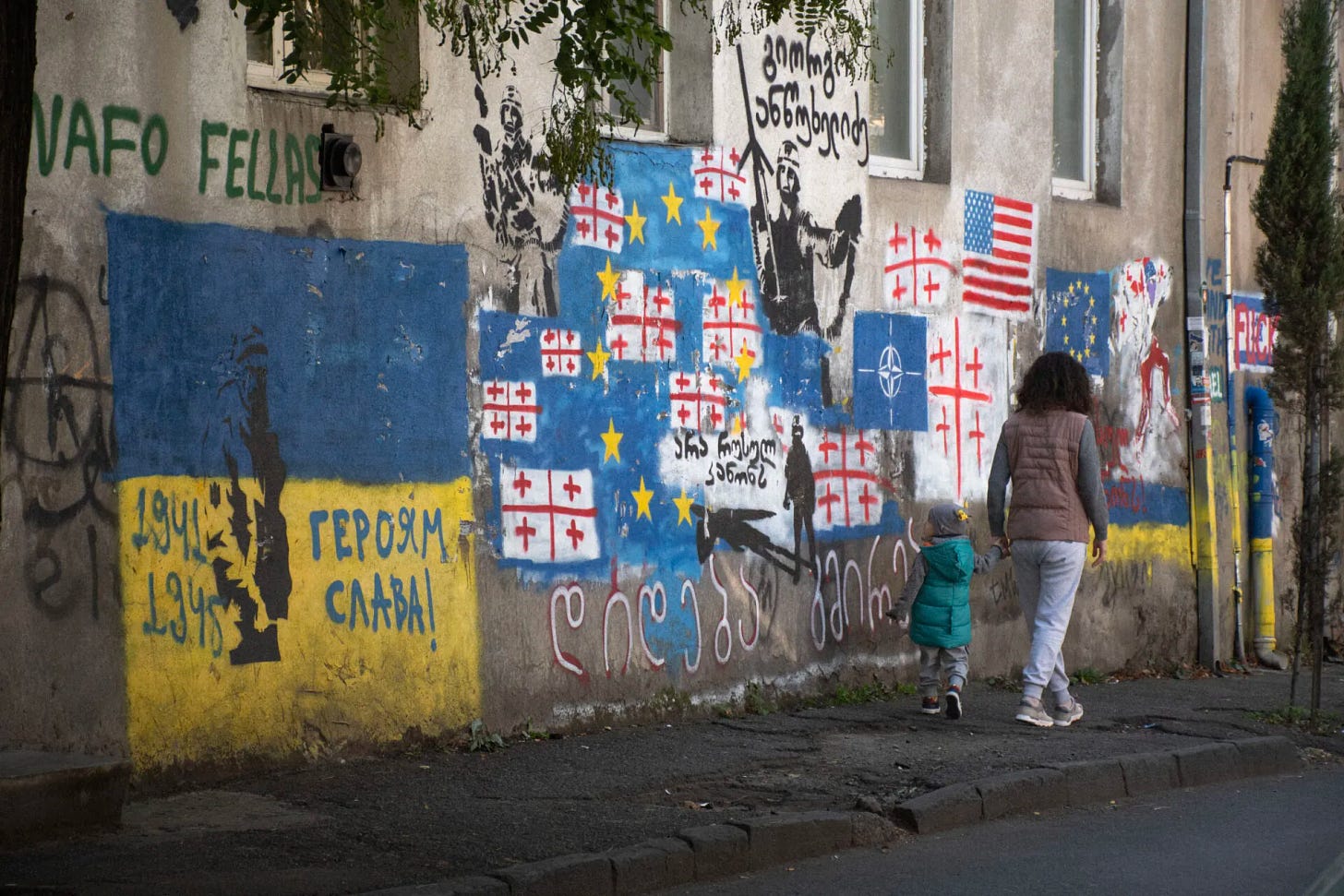Tunisia’s Political Prisoners, Cluster Munitions, Georgia Elections, and More
The latest at Inkstick Media.

Hello, everyone.
After the backsliding that followed the Arab Spring, Tunisia earned a reputation for its ability to build a democracy in an otherwise largely authoritarian Middle East and North Africa. Now, the country has come under fire for its treatment of political prisoners, reports Alessandra Bajec.
Speaking of the region, pundits have spilled an unfathomable amount of ink on arguments about how the US election results will impact Washington’s policies in the Middle East. Yet, as Alexander Langlois argues, Donald Trump’s reelection will likely only lead to more of the same misguided policies of recent decades.
That’s not all we’ve got at Inkstick. And if you’re not already, please follow us on Twitter, LinkedIn, Threads, Facebook, Instagram, and YouTube.
“After US Elections, Middle East Policy is Unlikely to Change” by Alexander Langlois (Nov. 4)
Ahead of the US elections, many speculated about how much of an impact they would have on US relations in the Middle East. Donald Trump won the vote, of course, but even if it had gone to Kamala Harris, Washington’s Middle East policy would have looked like much of the same we’ve seen for decades.
“What US Elections Mean for Latin America and the Caribbean” by Adam Ratzlaff (Nov. 4)
Conventional wisdom holds that foreign policy is not a major driver in US elections, but with Trump gearing up for a second term, inter-American diplomacy is once again in the spotlight. Trump has promised to ramp up deportations and his running mate, JD Vance, has suggested that the administration might seek to tax remittances to the Americas.
“Biden Should Act Now to Redeem His Legacy on Cluster Munitions” by Ellie Kline (Nov. 6)
Over the last 18 months, US President Joe Biden has transferred internationally banned cluster munitions to Ukraine seven times. Cluster munitions disproportionately harm civilians, and most countries rightfully recognize them as unacceptable.
“How Russia Weaponized Religion in the War on Ukraine” by Catherine Wanner (Nov. 6)
Since 2014, Ukraine has been trying to repel escalating Russian aggression. The Kremlin has used its close ties to the Russian Orthodox Church (ROC) to weaponize religion in favor of Russian interests.
“After Contested and Violent Elections, Republic of Georgia Moves Closer to Russia” by Théodore Donguy (Nov. 7)
Situated at the strategic crossroads between Europe and Asia, this former Soviet republic occupies a key position in the Caucasus. Since its independence in 1991, Georgia has navigated between its pro-Western aspirations — namely, its desire to join the European Union and NATO — and pressures from its northern neighbor, Russia.
“In Tunisia, Families of Prisoners of Conscience Keep up the Fight for Freedom” by Alessandra Bajec (Nov. 7)
Once hailed as a democratic enclave in the Middle East and North Africa, Tunisia has faced backsliding in recent years. More than 170 people are held in Tunisia’s prisons for their perceived political views. Their relatives remain unwavering in their pursuit of justice.
“Deep Dive: A Gender Party in Southern Europe” by Emily Tamkin (Nov. 8)
A new paper in Southern European Society and Politics examines political manifestos in Greece, Portugal, and Spain in order to determine when political parties pay attention to gender-related political interests, and how they determine their positions.
From the desk of Patrick Strickland, managing editor of Inkstick Media.




